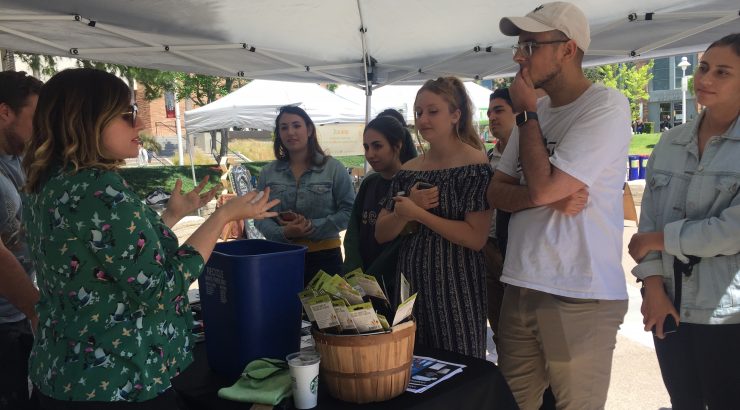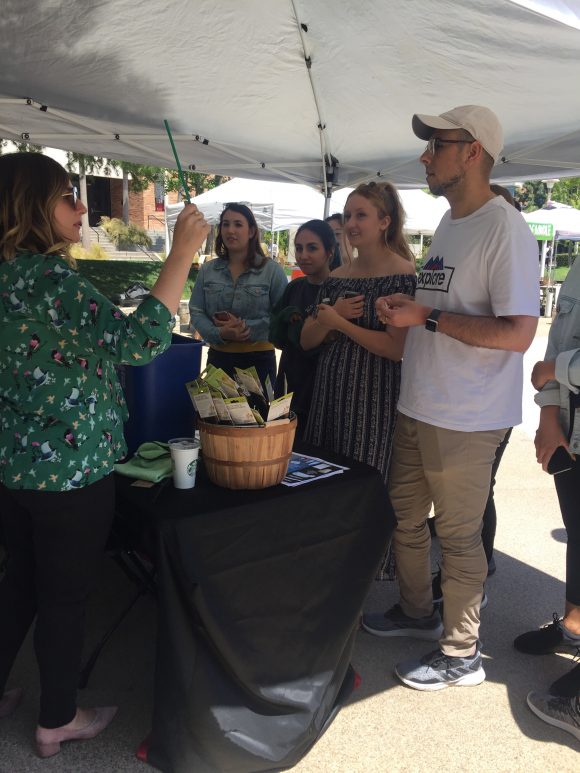
Confident in Your Recycling Abilities? Common recycling mistakes and tips on how to reduce contamination
June 7, 2019
Last April, in celebration of Earth Day, the Office of Sustainability gave away over 400 of our widely popular bamboo reusable utensil sets! Before members of the Chapman community were able to get their hands on these sustainable gifts, students, faculty and staff tested their recycling knowledge on a variety of items that we previously selected. Many of the items we selected are both commonly found on our campus and commonly placed into the wrong waste bin.
utensil sets! Before members of the Chapman community were able to get their hands on these sustainable gifts, students, faculty and staff tested their recycling knowledge on a variety of items that we previously selected. Many of the items we selected are both commonly found on our campus and commonly placed into the wrong waste bin.
Contamination is a serious issue when it comes to recycling. Placing items in the recycling bin, when they should actually be placed in the trash or compost, has the potential to cause entire batches of recycling to be sent to the landfill. This is because recycling plants, especially those in China (where we send the majority of our recyclables), have become far more strict on what they accept. This reflects just how important it is for the public to know their city’s recycling guidelines.
However, recognizing that Recycling is the fourth “R,” after Refuse, Reduce, and Reuse is even more important in terms of preventing more waste from entering landfills.
Below are the items that the Chapman community were quizzed on:
NOT Recyclable:
- Single-use plastic utensils
- Plastic straws
- Napkins*
- Hot coffee cups* (since they are lined with wax, this makes them non-recyclable)
- Plastic wrappers
- Styrofoam
Recyclable:
- Starbucks’ lids and cups for cold drinks
- Starbucks’ lid for hot drinks
- Batteries (e-waste only)
- Clothes, linens and shoes (although you should always try to sell or donate these items first!)
- Newspaper*
- Tin foil (if clean and un-crinkled)
*Compostable, when a compost bin is available
Tips to Become a Better Recycler:
- Look for the triangle. If you’re not sure if a plastic is recyclable, look for the triangle symbol with a number inside. Luckily, California accepts plastics numbered 1-7!
- Rinse before you toss. Throwing containers or cups soiled with food, grease or liquids in the recycling bin has the potential to contaminate the entire batch. A simple rinse can prevent this.
- Use your resources. The city of Orange’s municipality, CR&R, has a great guide to help you better properly separate your trash and recycling. View it here!